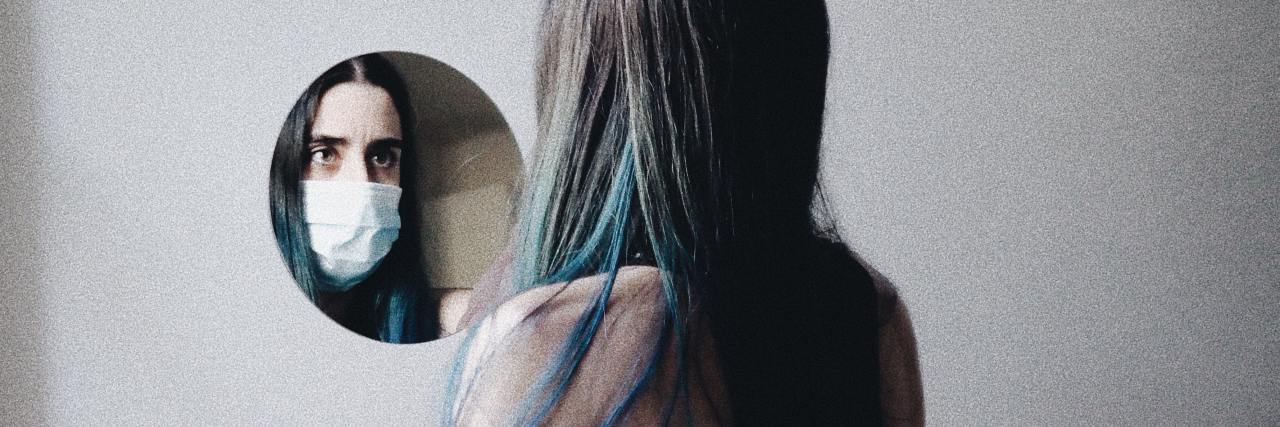Why COVID-19 Makes Body Dysmorphic Disorder Awareness More Important Than Ever
Editor's Note
If you live with an eating disorder, the following post could be potentially triggering. You can contact the Crisis Text Line by texting “NEDA” to 741741.
A picture, a video chat request, a “quick” glance in the mirror, a dressing room adorned with mirrors, or a reflection in the window; all of it seemingly “innocent,” right? Simple, everyday occurrences where one is presented with an image of themselves. Maybe they notice a hair out of place, tired eyes or a small stain on their shirt, but all of it quickly dissipates as nothing more than a passing thought, simply noticing an aspect about themselves.
For others, such as myself, it is the contrary. Those fleeting glances can and will send me spiraling due to body dysmorphic disorder (BDD); seeing my reflection can summon a rampant, disparaging dialogue leading me to restrict, isolate and/or verbally and silently berate myself. A well-meaning video chat can turn into a fixation on my appearance and all that is wrong with me. A request for a photo can spark a turbulent wave of anxieties, knowing the image reflecting back will be never adequate in my mind.
Walking past mirrors and windows with the ability to reflect my image, I avert my eyes. Washing my hands at the sink with a mirror facing me, I avert my eyes. It is a constant fear, a devil on my shoulder waiting to wreak havoc with a simple glance or photo. The misses and losses continue to mount as I grow older. Missed connections, memories and snapshots all from a desire to anesthetize myself from seeing my image reflecting back at me.
It’s especially important to remember now more than ever, with physical social distancing in place due to the coronavirus (COVID-19) pandemic: a friend or family members’ reluctance to video chat or send photos of themselves may not be a rejection, but rather a means to quiet or lessen a procession of negative dialogue and behaviors. A photo is not simply a photo; a video chat is not solely a video chat; it can unleash a mountain of fears and require an immense amount of courage, bravery and encouraging self-talk. Communication is communication and sometimes, it is necessary to accept a phone call, text or email and recognize it as sufficient; one never knows whose fears you may be alleviating by doing so.
Photo by Elizabeth Lies on Unsplash

